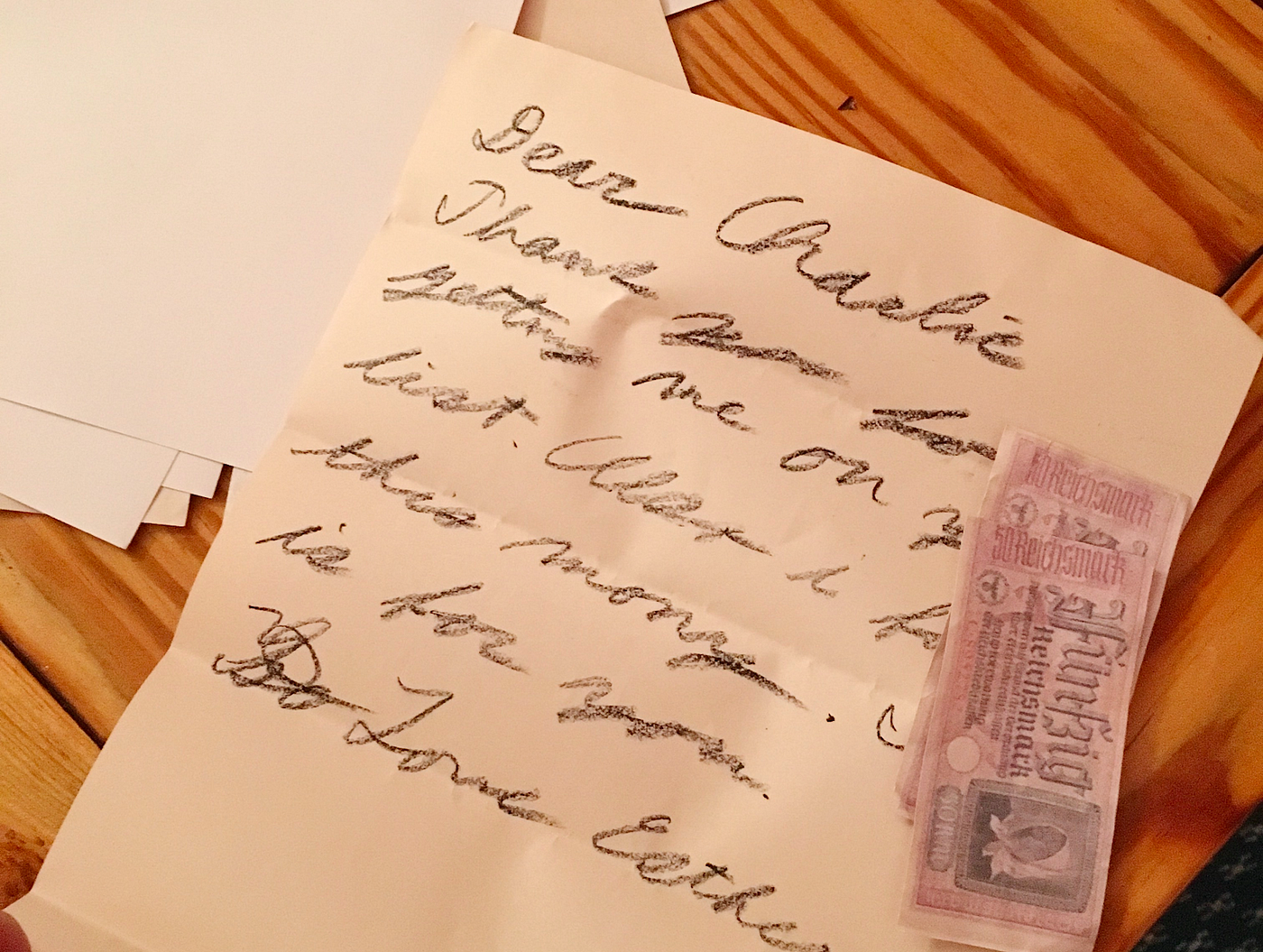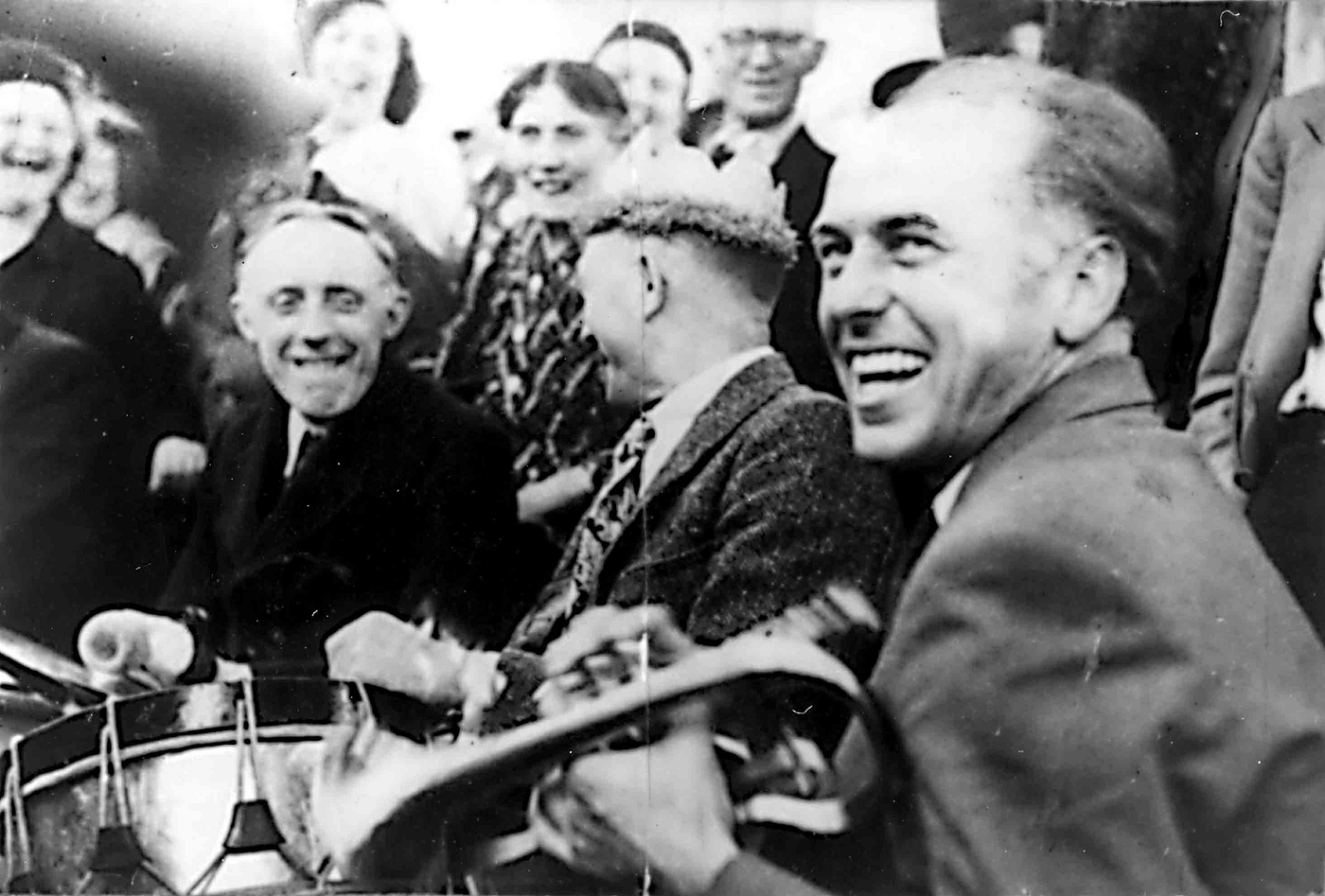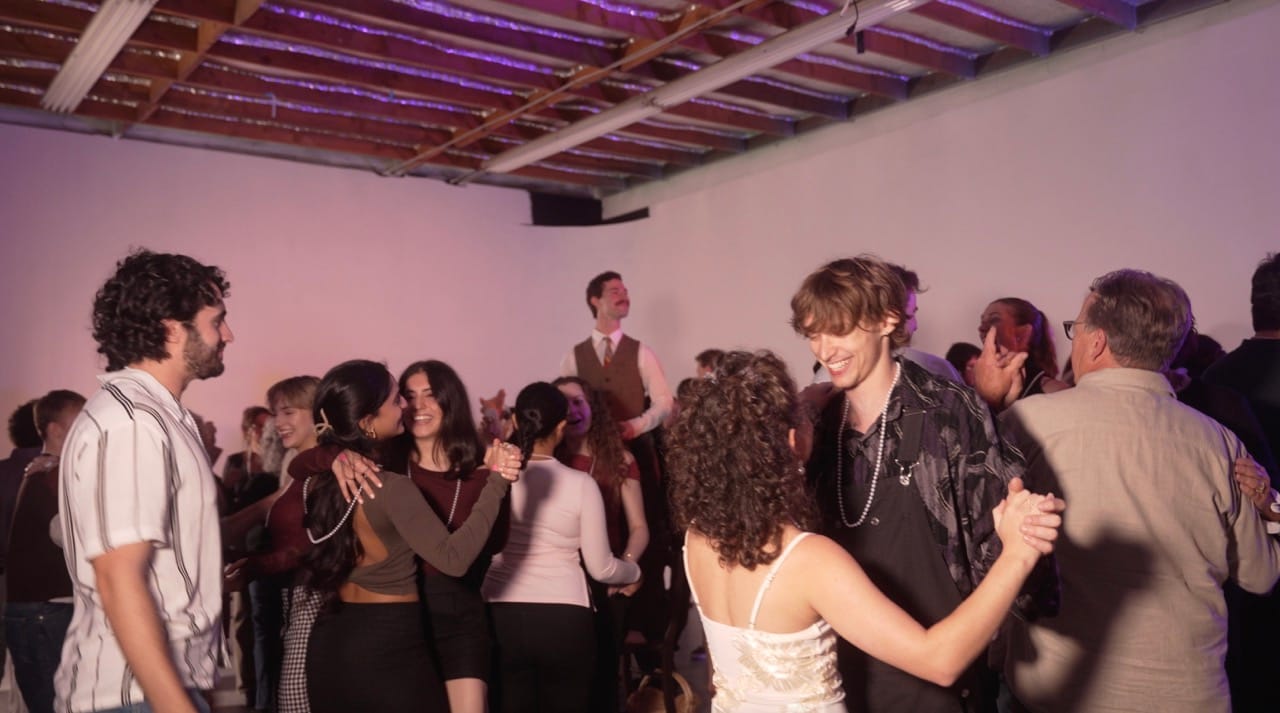
Sinking Ship Creations presents Betsy Isaacson’s roleplaying experience
“You’ve never seen so many goddamn orphans before.”
This was the phrase that stuck out to me in my first email from immersive live-action roleplaying company Sinking Ship Creations after signing on to participate in their latest experience, Escape from Marseilles. I had just been assigned a character who is part of an underground resistance program during World War II. As part of this program, I would be working with a group of about ten others to free those considered “Undesirables” by the Vichy government, a puppet state of Nazi Germany. Our goal was to free as many artists, Jews, children, queer people, and the like from Marseilles, and send them to a safer place, through whatever means necessary.
Upon receiving those pre-show emails from Sinking Ship, I was delighted find the same fantastic level of pre-show world building as I did when experiencing Project Ascension this past May. I received a detailed survey as to what kind of character I would (and would not) like to play, which made me feel more invested in and connected to the character I was assigned: a American Southern jack-of-all-trades named Charlie Fawcett. I pored over Charlie’s history and his role in Marseilles. I was also excited to receive documents about the other characters I would be meeting, the history surrounding our mission, and the circumstances we would encounter. With Sinking Ship’s help, I felt ready to enter the fray.

On the day of the experience, I arrived at the designated location, the charming Soldiers, Sailors, Marines and Airmen Club in Manhattan, which served as the ideal setting for the World War II-era adventure we were about to embark on. When we arrived, an actor portraying renegade Varian Fry explained the mechanics of the experience, which consisted mainly of a tabletop style game: players would review the character profiles of a handful of potential “refugees” seeking asylum and debate as to whom should be prioritized in the escape. Once a refugee was chosen, the money for their escape was calculated and necessary forged documents chosen from a small supply, provided by Fry. As the night went on, the pile of refugee profiles and the potential means of escape were added to by Fry, via paper missives from a mail chute.
Once the team of players had decided on a refugee and matched their profiles together with the necessary money and documents, we were instructed that pairs of players should go together to drop the packet off at a diner down the block. In my eyes, these moments were the most exciting; out in the real world, I was confronted with the familiar, exhilarating feeling that often accompanies immersive theatre that takes place “in the wild.” I found myself wondering who was an actor and who was “in” on the story. When I did encounter a character on the street, the interactions left me looking forward to more. But it turned out that the experience was led by only two actors, though, for such a small cast, they carried the story forward very well. I always found myself excited for my next trip out of the game room and into the real world.
Unfortunately, though the interactions with the actors were thrilling, the tabletop element became the majority of the entertainment for the evening. As time passed, I realized that we were being asked to continue the same set of actions over and over — choosing between refugees, determining how they would escape, clipping their documents together, and sending them out to the drop-off location. Actor interaction was scarce, and we were, for the most part, left on our own to entertain ourselves, with nothing to support the story except for the paper props provided. I sensed the hopes of tension between players arising on its own as decisions were made. For my group, that simply was not the case. Your experience at Escape From Marseilles really depends upon the group you are playing with. It does have the room for amazing discourse between in-character players if the group is particularly interested in conflict or stretching the rules of the game. However, it also has the potential to be quite boring if players aren’t motivated to have that dialogue. Our group landed somewhere in the middle, giving their all at first but slowly petering out.
As some members of the group (including myself, at times) grew bored with the lack of variation, decisions as to which refugees we wanted to send next became arbitrary, and there were little stakes to be had in the decisions we made. The consequences of our choices felt a bit random, and we couldn’t discern how, or even if, our decisions were impacting the outcome. After a full evening of repeating the same actions over and over, the finale of the show lasted for a few lines delivered by an actor…and that was that. There were dramatic moments that were clearly geared to increase the tension in the room: the loss of our guide, who was taken by the enemy police. Emergency sirens would require us to switch off the lights temporarily. And as time passed, we received more new refugees to consider, and were alerted to a few deaths of refugees that we had sent but had not made survived the journey. However, even with these elements, the stakes never felt truly raised. Overall, it felt like the experience hit a plateau, and did not quite recover before our time was up.

This is not to say that Escape from Marseilles creator Betsy Isaacson has a lack of potential as a larpwright; on the contrary, she demonstrates definite prowess through her work on this piece. Isaacson has recently joined the team at Sinking Ship Creations, who have proven themselves in the past to be masters of execution, so hopefully her ideas are in good hands, and will thrive with a little refining. The attention to detail that Isaacson has given to the historical specifics connected to her work is impressive, and speaks to her dedication and passion. The love and care she has put into honoring the complex characters in Escape from Marseilles is palpable, even in the pre-show communications. She displays a refreshing tendency towards critical thinking, which reveals itself through the careful construction of each refugee “character sheet” or action card provided during Marseilles.
This respect for history really shined when the real-life histories of our characters were revealed. Having played through the night under the impression that Charlie Fawcett was fictional, it was a moving experience to learn that not only was he real, but many of the accomplishments our team had achieved in our liberation efforts were actually achieved in reality, as well. As I sat the next morning and read the life story of Fawcett online, I felt moved by the man he had been. There were even a few particular decisions I had made in game (for example, forging a marriage certificate to free a refugee under my name) that Fawcett himself had also chosen to do. The moments of unplanned synchronicity between the game and real-life history were particularly sweet. I would even say that the highest stake in the experience was created by this truth being revealed: the hope that you had lived up to your character’s legacy. Escape from Marseilles is begging to have the reveal of this information be treated with more grandeur, and more heavily incorporated into the experience.

In the end, Escape from Marseilles felt more like a tabletop game played in an immersive setting, rather than a full-on roleplaying experience. It is a remarkable idea with slightly unremarkable and repetitive execution. It’s possible that a group of dedicated LARPers will know what to do with the experience, and will inject the necessary energy and spirit into the discourse that takes up the majority of the evening. All in all, this experience is not for people who want to be entertained, so much as it is for people who want to explore the format and figure out what they can do with the system provided to them, and how they can push those boundaries. Perhaps with some refining of the game play, and adjustments to the expectations set for the audience, Escape From Marseilles will grow into a richer, more fulfilling work.
Escape From Marseilles currently has two more performances scheduled n November; tickets are $62. You can follow and participate in Sinking Ship Creations’ upcoming events on their website, including their new experience The Mortality Machine.
NoPro is a labor of love made possible by:

…and our generous Patreon backers: join them today!
In addition to the No Proscenium web site, our podcast, and our newsletters, you can find NoPro on Twitter, Facebook, YouTube, Instagram, in the Facebook community Everything Immersive, and on our Slack forum.



















Discussion